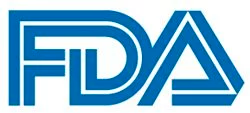FDA Approves Niraparib Plus Abiraterone Acetate for BRCA+ mCRPC
The FDA has approved niraparib plus abiraterone acetate, given with prednisone, for the treatment of adult patients with deleterious or suspected deleterious BRCA-positive, metastatic castration-resistant prostate cancer, as detected by an FDA-approved test.

The FDA has approved the first-and-only dual action tablet (Akeega) combining niraparib (Zejula) and abiraterone acetate (Zytiga), given with prednisone, for the treatment of adult patients with deleterious or suspected deleterious BRCA-positive, metastatic castration-resistant prostate cancer (mCRPC), as detected by an FDA-approved test.1
The approval is based on findings from the phase 3 MAGNITUDE trial (NCT03748641), in which niraparib and abiraterone acetate plus prednisone significantly improved radiographic progression-free survival (rPFS) compared with abiraterone acetate plus prednisone alone in patients with BRCA-positive mCRPC (HR, 0.53; P =.001).
At the second interim analysis, which was presented at the 2023 Genitourinary Cancers Symposium with a median follow-up at 24.8 months, in the BRCA-positive subgroup median rPFS was 19.5 months with the niraparib regimen compared with 10.9 months for the placebo regimen (HR, 0.55; 95% CI, 0.39-0.78).2
Additionally, there was an improvement in the secondary end points of time to symptomatic progression (HR, 0.54; 95% CI, 0.35-0.85) and time to initiation of cytotoxic chemotherapy (HR, 0.56; 95% CI, 0.35-0.90), favoring the investigational regimen.1 A trend towards improvement in overall survival was also seen with the investigational regimen (HR, 0.88; 95% CI, 0.58-1.34).
"As a physician, identifying patients with a worse prognosis is a priority, especially those whose cancers have a BRCA mutation," Kim Chi, MD, medical oncologist at BC Cancer – Vancouver and principal investigator of the phase 3 MAGNITUDE study, said in a news release. "We prospectively designed the MAGNITUDE study to identify the subset of patients most likely to benefit from targeted treatment with AKEEGA and to help us understand how we can potentially achieve better health outcomes for patients."
The phase 3, randomized, double-blind, placebo-controlled multicenter MAGNITUDE trial evaluated the combination of niraparib and abiraterone plus prednisone in patients with treatment-naive mCRPC with or without certain HRR gene alterations.2
One cohort included patients with predefined HRR gene alterations, including ATM, BRCA1, BRCA2, BRIP1, CDK12, CHEK2, FANCA, HDAC2, and PALB2. The other cohort included patients who did not have HRR gene alterations.
Patients were randomly assigned to receive niraparib or placebo plus abiraterone and prednisone.
The primary end point of the trial was rPFS per blinded independent central review. Secondary end points included time to initiation of cytotoxic chemotherapy, time to symptomatic progression, and overall survival.
Additional findings from the second interim analysis of the trial also displayed a trend toward delayed time to worst pain intensity (HR, 0.70; 95% CI, 0.44-1.12) and pain interference (HR, 0.67; 95% CI, 0.40-1.12) in BRCA-positive patients who received niraparib plus abiraterone and prednisone vs the placebo-based combination.2
"The approval of AKEEGA brings an important treatment option to patients with prostate cancer as they consider their road ahead, and it also highlights the importance of genetic testing and precision medicine for this disease," Shelby Moneer, MS, CHES, vice president of patient programs and education, ZERO Prostate Cancer, added.1 "All individuals diagnosed with prostate cancer should consider genetic testing, especially those from racial and ethnic minority groups who tend to have worse cancer outcomes. This is imperative to close the racial and ethnic disparities in prostate cancer health outcomes."
The safety profile of the combination plus prednisone was consistent with the known safety profile of each agent alone. Among patients in the MAGNITUDE study with a BRCA gene alteration, 41% experienced a serious adverse effect with the investigational regimen.
The most frequent adverse effects (AEs) occurring in at least 20% of patients in the investigational and control arms, respectively, were musculoskeletal pain (44% vs 42%, respectively), fatigue (43% vs 30%), constipation (34% vs 20%), hypertension (33% vs 27%) and nausea (33% vs 21%). Permanent discontinuation of either study treatment because of an AE occured in 15% of patients.
References
- U.S. FDA approves AKEEGA (niraparib and abiraterone acetate), the first-and-only dual action tablet for the treatment of patients with BRCA-positive metastatic castration-resistant prostate cancer. News release. Janssen. August 11, 2023. Accessed August 11, 2023. https://www.prnewswire.com/news-releases/us-fda-approves-akeega-niraparib-and-abiraterone-acetate-the-first-and-only-dual-action-tablet-for-the-treatment-of-patients-with-brca-positive-metastatic-castration-resistant-prostate-cancer-301899028.html
- Janssen presents updated data demonstrating improved outcomes from the use of niraparib in combination with abiraterone acetate plus prednisone as a first-line therapy in patients with BRCA-positive metastatic castration-resistant prostate cancer. News release. Janssen. February 16, 2023. Accessed August 11, 2023. https://www.jnj.com/janssen-presents-updated-data



